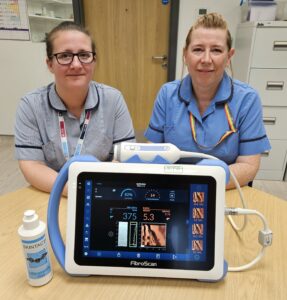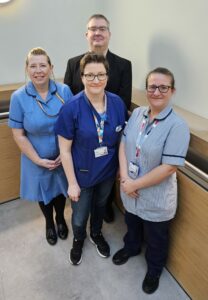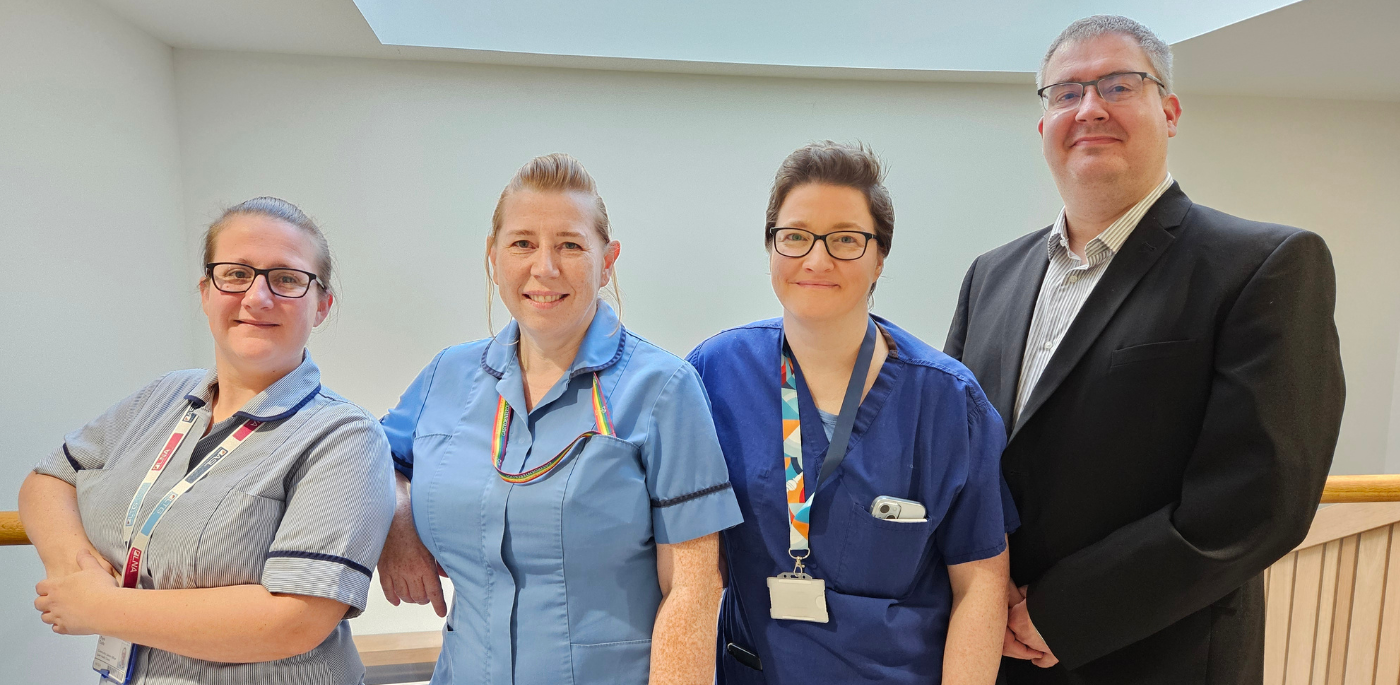Improving patient care, reducing emergency admissions, treating disease earlier and saving lives; the aims of a two-year liver health project taking place across the Humber region.
Funding of £500,000 over two years from NHS England and the Humber and North Yorkshire Cancer Alliance has been secured to pilot Liver Health Checks in a number of community locations across Hull, East Yorkshire, North and North East Lincolnshire.
Initially starting in Hull and East Yorkshire in April 2023, the project was extended after 12 months to encompass Scunthorpe, Grimsby and surrounding areas, and parts of Scarborough too. The region is one of just 18 sites across the country conducting the liver health checks project and this is based on high levels of deprivation and poor health outcomes from liver disease.
By working with healthcare and service providers, local authorities, local employers, community groups and taking scans out to those who might benefit most, the team is seeking to identify liver disease and begin treatment at a much earlier stage.

Faye and Beth with their fibroscan machine
Beth Featherstone, community liver nurse specialist explains:
“The Liver Health Check Pilot is about detecting liver disease early so it can be managed effectively and, in some cases, so we can seek to reverse any damage.
“People with early stage liver disease don’t always know there is a problem, so in many cases liver disease is only identified at the point it has become chronic sometimes when a person has been rushed to hospital. Patients with chronic liver disease also have a higher risk of developing liver cancer, so it’s vital we spot the disease early to give people a much broader range of treatment options and a better chance of managing the condition long-term.”
A team of specialists is now offering community-based fibroscans and lifestyle advice to people who are deemed at risk of liver disease to check their liver health and identify signs of damage. Typical risk factors include a fatty liver,
type 2 diabetes, a BMI of 30+, Hepatitis B or C, and alcohol consumption of more than 14 units per week.
Beth continues:
“We go to lots of different community settings to offer scans because we know that some of those who are most at risk, and whom we’re particularly trying to target, can find it difficult to engage in routine healthcare. We visit community alcohol and drug services, homeless hostels, GP surgeries, outreach clinics and diabetes clinics to try to break down any barriers and make it as easy as possible for people to have the checks.
“Not only is it better for the individual that we identify problems early, but it can also lessen the impact on the NHS by reducing avoidable hospital admissions or the long-term requirement for cancer care.”

The Community Liver Health Check Team, L-R Bethia Featherstone, Dr Lynsey Corless, Stephen Brocklesby, and Faye Coite.
The programme also benefits from a dedicated Community Liaison Officer (CLO) whose role it is to support vulnerable people in particular, by encouraging those who traditionally might find it difficult to attend routine healthcare or see healthcare professionals. Through dedicated one-to-one support, the CLO has helped to reduce the number of missed appointments by answering questions and concerns, reminding people about appointments and helping with travel.
Patients diagnosed with liver disease through the pilot are referred directly to the hospital’s liver team for ongoing monitoring for complications of liver disease, such as cancer.
Eighteen months into the project, despite the team numbering just four people; project lead and consultant hepatologist, Dr Lynsey Corless, community liver specialist nurse, Bethia Featherstone, community liaison officer, Faye Coite, and data manager, Stephen Brocklesby; they have been able to make a big impact. The Hull-based team has completed more than 3,000 fibroscans across East Yorkshire and Northern Lincolnshire, and around one in 20 people scanned have required further assessment or referral into liver services due to advanced fibrosis or cirrhosis.
Dr Lynsey Corless explains:
“Liver disease is often diagnosed at a relatively late stage, by which time it can have a much bigger impact on people’s quality of life and be harder to treat.
“We are delighted to be able to offer the Liver Health Check pilot in our area, not only to help identify liver problems sooner but also to raise awareness of liver disease, and how to reduce the risk of developing liver problems in the future.”
Beth continues:
“The level of liver disease we have identified so far is in line with other sites running the liver health check pilot, but scaled up, this does suggest that thousands of people across the country could be living with unknown liver disease, which is really worrying,”
“We know that drinking too much alcohol is one of the most common reasons for liver disease, but it’s not the only reason, so we have also worked with local employers to offer the fibroscans plus preventative, healthy living advice to try and stop problems before they start.”
As well as their ongoing work in the community, the team will also be hosting a Liver Health Check event in Scunthorpe on 31 January for local people to call in, have a liver health check and/or fibroscan and find out more about their risks and disease prevention.
For more information on liver disease, visit the NHS website.

